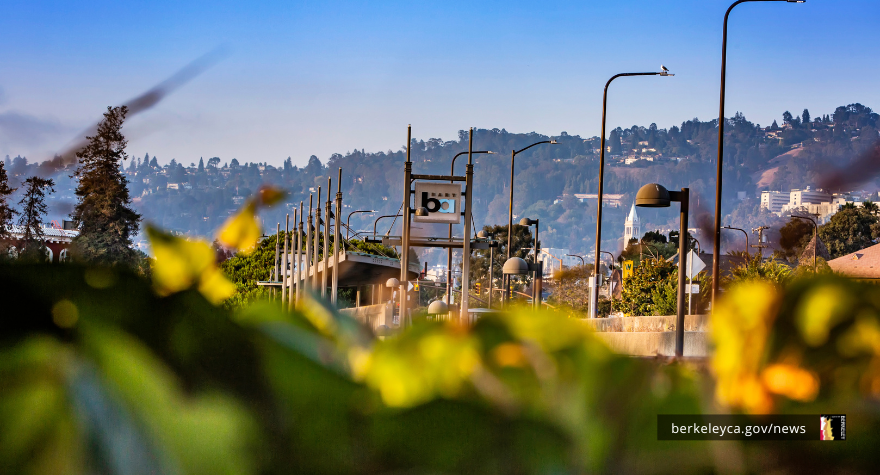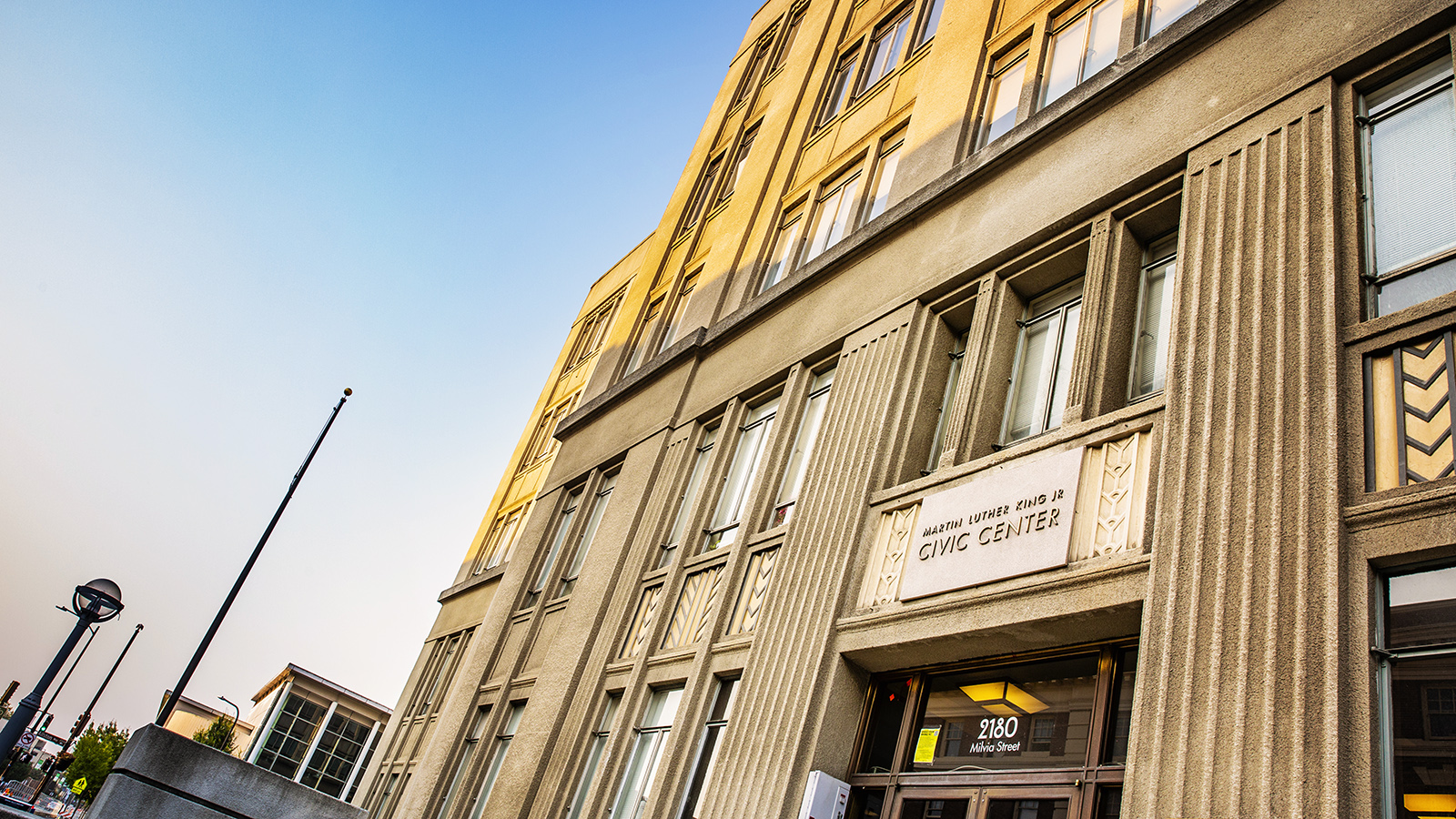Zoning Permits
Learn about the different types of land-use permits, when you need them, and what it takes to obtain them.
The activities that require some permit from the Planning and Development Department include, but are not limited to:
- Construction of a new structure
- Demolition of a structure
- Modifications to an existing structure
- Establishment of a new use of a piece of property
- Modifications of an existing use
- Subdivision of property
- Transfer of business or change in business location
- Construction in the street and/or modifications to curbs
The Permit Service Center processes and issues permits. The major components are (in order): zoning approval, building permit, and construction and inspections. If you need to make changes to the approved plans, you need to check with zoning and building to make sure the changes are okay.
Because the City of Berkeley is a largely built-out city where what one person does with his/her property can have impacts on others, the City regulates most private development and changes in businesses to minimize those impacts and ensure the health, safety, and welfare of the community.
ZONING PERMITS ARE DETERMINED BY ZONING AND PROPOSED ACTIVITY
The Zoning Ordinance determines the type of zoning permit that may be needed, based on the proposed activity. It is not possible to lay out all of the possible permits that may be needed for any given project. A sample of project types and permits needed follows:
| Project Type | Zoning Certificate or Administrative Use permit | Use Permit | Building Permit(s) | Business License | Plumbing Permit | Design Review | Other Permits & Reqmts. |
|---|---|---|---|---|---|---|---|
|
Residential addition |
✔ |
✔ |
✔ |
Plumbing, mechanical, and electrical permits may also be needed, depending on the proposed work. |
|||
|
Change in business location |
✔ |
✔ |
✔ |
✔ |
Confirmation that there is an approved address, including suite number if necessary. |
||
|
Change of use |
✔ |
✔ |
✔ |
✔ |
Required zoning permit varies by zone and the type and size of the proposed use. |
||
|
Replace water heater |
✔ |
||||||
|
Remodel the interior of a commercial space for a new commercial tenant |
✔ |
✔ |
✔ |
Confirmation that there is an approved address, including suite number if necessary. Plumbing, mechanical, and electrical permits may also be needed, depending on the proposed work. |
|||
|
Remodel the exterior and interior of an existing commercial building for a new tenant (no expansion of existing building space) |
✔ |
✔ |
✔ |
✔ |
✔ |
Confirmation that there is an approved address, including suite number if necessary. Plumbing, mechanical, and electrical permits may also be needed, depending on the proposed work. |
|
|
Demolish an existing residential building and replace with a new residential building |
✔ |
✔ |
Use Permit for demolition and Use Permit for new construction. If the building is a landmark or structure of merit, proposed demolition would require preparation of an Environmental Impact Report and a Structural Alteration Permit from the Landmarks Preservation Commission. |
Note: A business license is not a permit but is required to do business in Berkeley. Design review is required for any exterior work in non-residential zones.
PERMITS ENSURE COMPATIBILITY WITH LOCATION
Zoning Permits ensure a project use and design is compatible with its location. In addition, all businesses in the City of Berkeley are required to be in conformance with the uses permitted in the Zoning Ordinance. Applicants for development projects and new businesses should begin with review by zoning staff to determine what type of zoning permit is needed and to ensure that a use is allowed in the location proposed.
Some types of development and uses are allowed “by-right,” meaning that no public review is required so long as the proposed project or use conforms to the requirements of the zoning ordinance. For a by-right project, Zoning review is completed as part of the building permit application, and the approval constitutes a Zoning Certificate. For business license applications, there is a specific-type of Zoning Certificate that is issued before applicant may proceed with application for a business license.
However, many proposed development projects or new businesses require some level of “discretionary review,” meaning they are subject to public notice to neighbors and, in some cases, a public hearing. In this instance, prior to applying for a building permit, an applicant is required to proceed through the public review process to receive an Administrative Use Permit, Use Permit, or other entitlement.
ZONING PERMITS PROTECT YOUR RIGHTS, AVOID CONFLICT
Zoning permits ensure that projects align with neighborhood uses, reduce potential conflict with neighbors, are appropriate for the area, and preserve historical structures. We don’t drill for oil next to schools. More information about common zoning permits is below. For more information about each, please see Zoning Ordinance Chapter 23.406.
ZONING CERTIFICATE
A Zoning Certificate (ZC) confirms that a particular land use or structure is allowed under the Zoning Code. A ZC is generally issued by the Land Use Planning (Zoning) staff through the Online Service Center, the Permit Service Center, or as part of the building permit review.
Zoning Certificates are typically required if you are starting a new use or changing an existing use, building a structure or starting a business. For example, you might need a ZC when:
- Starting a new business or applying for a business license
- Obtaining a building permit for a by-right project
- Adding some types of accessory structures, such as a garage or shed
- Constructing a small, single-story residential addition
- Proposing a minor, interior remodel
More complex projects or projects which do not meet existing zoning standards may require an Administrative Use Permit or Use Permit. For more information about ZCs, and Zoning Conformance review, please see Zoning Ordinance Chapter 23.406.020.
ADMINISTRATIVE USE PERMIT
An Administrative Use Permit (AUP) is a discretionary permit for the use of land or land development that is issued by the Zoning Officer. Most AUPs are exempt from environmental review pursuant to the California Environmental Quality Act (CEQA). An AUP may be appealed to the Zoning Adjustments Board and its decision may be appealed to the City Council by any "aggrieved person or entity." For more details about AUP, please see the Zoning Ordinance Chapter 23.406.030. Please also review the application submittal requirements.
USE PERMIT (PUBLIC HEARING)
A Use Permit (Public Hearing) (UPPH)—also known simply as a Use Permit—is a discretionary permit for the use of land or land development that is issued by the Zoning Adjustments Board (ZAB) after a public hearing. Though many UPPH are exempt, they sometimes require environmental review pursuant to the California Environmental Quality Act (CEQA). A UPPH may be appealed to the City Council by any "aggrieved body." For more details about UPPH please see the Zoning Ordinance Chapter 23.406.040. Please review the application submittal requirements for more information.
DESIGN REVIEW
Design Review is required for exterior changes in non-residential zones and commercial, institutional, or mixed-use buildings in certain zones.
There are two levels of Design Review pursuant to the Zoning Ordinance:
- Staff Level Design Review (SDR) - SDR is conducted by staff for less complex projects that do not require ZAB review and approval. They are subject to appeal to the Design Review Committee, then the Zoning Adjustments Board, and finally the City Council.
- Design Review Committee (DRC) - DRC review is for more complex projects that require approval by the ZAB. The DRC makes a recommendation to the ZAB that is then considered as part of the overall project. Any Design Review Committee action is subject to appeal to the Zoning Adjustments Board, and then the City Council.
Projects that involve landmarks go to the Landmarks Preservation Commission (LPC) rather than the Design Review staff or committee.
For more information about Design Review, please see Zoning Ordinance Chapter 23.406.070. Please review the application submittal requirements:
LANDMARKS DESIGNATION AND DESIGN REVIEW/STRUCTURAL ALTERATION PERMIT
The Landmarks Preservation Commission (LPC) oversees the review of Landmark Applications for properties worthy of preservation for a variety of reasons, including but not limited to architectural merit and historical significance. The LPC conducts Design Review for landmarked properties through the Structural Alteration Permit process. Actions by the LPC are subject to appeal to the City Council. For more details about landmark designation and alteration please see the Berkeley Municipal Code Chapter 3.24.
MAPS AND CONDOMINIUM CONVERSIONS
BMC Title 21 governs the manner in which land or air space is divided for the purposes of condominiums, parcels and subdivisions, lot line adjustments and other land boundary processes. Condominium conversions to change existing rental units into condominiums are processed by Land Use. Applications for condominiums associated with new construction, subdivisions and lot line adjustments are processed by Public Works. Please see BMC Title 21, “Subdivisions” for more information.
APPLY FOR A ZONING PERMIT
There are two ways to apply for a zoning permit (Administrative Use Permit, Design Review, Landmarks, Pre-Applications, Use Permits, and Zoning Research Letters).
Electronically
For applications that have small file sizes, you can email your completed application materials as attachments to Planning@cityofberkeley.info with the subject line "Electronic Zoning Submittal - [your project address]." Small files are generally less than 1 MB individually or less than 20 MB in total for all files.
For applications with larger files, email planning@cityofberkeley.info with the subject line "Request for Zoning BOX link - [your project address]." Staff will send you a personalized BOX.com link where you can upload your application materials.
Please note that we are unable to accept files from Dropbox or Google Drive links.
Land Use staff will screen your application materials, and once we have received the necessary items for submittal, will send an invoice. Your application is not considered accepted until you have paid the initial invoice.
In-Person (Intake Appointment Required)
To schedule an in-person intake appointment, please call (510)981-7410, or email Planning@cityofberkeley.info with the subject line "Appointment Request for Zoning Application." Land Use staff will reach out within on to two business days to schedule. Documents must be submitted in PDF format on a USB thumb drive for all in-person submittals.
Scheduled in-person intake appointments are held in the Permit Service Center (PSC) during normal business hours at the following times:
-
Monday and Wednesday: 9:00 am and 1:00 pm
-
Tuesday and Thursday: 9:00 am and 10:00 am
If you have the necessary items for submittal, your project will be invoiced and you may pay in person at the PSC Cashier. Your application is not considered accepted until you have paid the initial invoice.
Once an application is accepted, either electronically or in person, the assigned planner will reach out within 30 -days of payment to request any additional information required based on their review of your project. Additional material may also be required to comply with the California Environmental Quality Act (CEQA).
Please see the Guide to Submitting a Zoning Project Application for electronic plan standards and tips.
WHAT'S THE DIFFERENCE BETWEEN A ZONING PERMIT AND A BUILDING PERMIT?
Most development is regulated under two different codes: the Zoning Code and the Building Code.
Receiving a Zoning Permit is generally the first step in the development process, followed by applying for and receiving a Building Permit. For some projects, zoning clearance is given as part of the review for a Building Permit; in other instances, a separate Zoning Permit is required prior to application for a Building Permit.
- Zoning Code is oriented toward how a project fits into a community: it regulates setbacks, types of uses, height, parking requirements, design (for some types of projects) and similar concerns. The City is divided into zoning districts and each zoning district has its own set of regulations. For example, the regulations that would apply in a single-family residential district (R-1) will be different than those for a multi-family (R-3 or R-4) or commercial district. When a separate Zoning Permit is required, the City generally requires that an application be accompanied by site and building plans (including preliminary architecture for a new development).
- Building Code is oriented toward ensuring that structures are constructed to an appropriate standard and are safe for the uses intended. Application for most Building Permits must be accompanied by detailed construction drawings.
In addition to these codes, subdivision of land is regulated under the Subdivision Ordinance, and other codes may apply to particular types of projects, including the Fire Code.
Related Documents
News
Related BMC
- Municipal Code BMC Title 21 – Subdivisions
- Municipal Code BMC Title 23 – Zoning
- Municipal Code BMC Chapter 23.406 – Specific Permit Requirements
- Municipal Code BMC Section 23.406.020 – Zoning Certificates
- Municipal Code BMC Section 23.406.030 - Administrative Use Permits
- Municipal Code BMC Section 23.406.040 - Use Permits
- Municipal Code BMC Section 23.402.020 - Zoning Officer
- Municipal Code BMC Chapter 3.24 – Landmarks Preservation Commission



